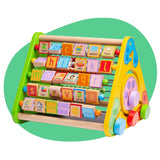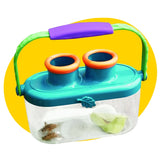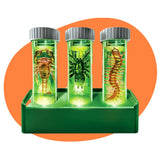Great Children, Bright Futures
 What do we want for our children? We want to give them as many skills to enable them to live as healthy happy lives as possible. We want them to be fearless but responsible, adventurous but considerate, to understand that for every action there is a reaction, for every right there is a responsibility. We want our children to feel secure enough to make great strides and to know that they have support and guidance should they need it.
What do we want for our children? We want to give them as many skills to enable them to live as healthy happy lives as possible. We want them to be fearless but responsible, adventurous but considerate, to understand that for every action there is a reaction, for every right there is a responsibility. We want our children to feel secure enough to make great strides and to know that they have support and guidance should they need it.
How do we achieve this? Our basic instincts are to protect our children, but it is not a matter of sitting them down and explaining how to move forward through life. We can’t do everything for them as how will they learn to do things for themselves? If children never experience challenges that they must overcome, how will they learn to deal with difficult experiences as they grow older?
It is our job, as carers, to scaffold their learning, their growth. We need to give them experiences from which they learn and allow them to piece together the information themselves.
The learning process is a complex one and will of course differ from person to person. It is said that “we learn 10% of what we read; 20% of what we hear; 30% of what we see; 50% of what we see and hear; 70% of what we discuss; 80% of what we experience and 95% of what we teach others” - A quote often attributed to Edgar Dale in accordance with his Cone of Experience (1940s).
This is a great starting point for establishing a learning method for your children. Whatever is it they can do or want to do, encourage them to experience it then teach you how to do it. For example; it is very easy, as a world-weary adult, to just say “Oh yes, I know how to make pancakes. I’ll make some for us now” thus shutting down any creativity and willingness to share that your child has. Much better to say “Oh, I love pancakes but I can’t remember what to do. Where do you think we should start?” This allows the child to show you what they already know and encourages them to think about what else they might need to find out. It gives them the chance to be learned but still ask for the help they need.
And allow them to make mistakes – they will learn far more from those than from you just showing them the right way to do things!
Great Steps Forward
1. Questions, questions, questions! Asking and answering!
Encourage your children to ask questions. About everything! Why, when, how, what, where? Be prepared to admit that you don’t know all the answers and help your child to come up with their own. Rather than give an immediate answer, encourage them to use what they already know to maybe get halfway to a solution then help them along for the rest. “That’s an interesting question. What do you already know that might help you to answer it?”
When asking your child question, keep them open ended. Asking a closed question, such as “Do you like this picture?” will elicit a yes/no answer whereas “Tell me what you think about this picture” will give your child a chance to think about it then share.
2. Wrong isn’t always wrong
Making mistakes is all part of learning and allowing your child to get things wrong will help them in the long run. Younger children aren’t afraid of making mistakes and will happily redo an activity until they ‘get it right’. If you can encourage them to see how they can build on what they’ve done before, they will become confident in trying different methods and will learn to thrive in any situation. It is as children get older and become socially aware, that they begin to associate making mistakes with shame and gradually become reluctant to try for fear of failure. Give them opportunities to experience challenges which they can overcome on their own – learning what to do after they have made a mistake is an important skill.
3. Problem solving
Encouraging your child to be a critical thinker will give them skills which they can use throughout their life. Provide them with opportunities to play, both indoor and outdoor – allow them to test how things work, ask themselves “What happens if?” Give them time to work through their tasks and, when they ask questions, help them to think critically and develop hypotheses by asking open ended questions in response (see 2.) Encourage them to think differently – ask them “What other ideas could we try?” – and allow them to try as many times as needed!
4. Encouragement
All the above rely on encouragement from you! Be there, join in, become part of your child’s learning journey and have fun with them.
5. Provide opportunities
This is where BrightMinds comes in! We specialise in science toys, maths toys, arts and crafts and other toys and games that are fun to use but also encourage learning and development.
We carry a specially curated selection of childrens' toys, games, gifts and books which will encourage questioning, exploration, creative ways to express their individuality. Many of our staff have educational backgrounds and our founder is a former teacher.
- We believe that within each child lives a genius, a "bright mind", ready to blosom and our role as adults is to create a loving space to allow that genius to germinate, grow and bloom.
- We believe that by creating a loving and safe environment for learning, children will take risks, supported by the knowledge that they can never fail, simply learn.
- We believe that children should be free to develop at their own pace, guided by their own successes.
- We believe that learning is a lifelong journey to be nurtured, one which never ends.
- We believe that we can play a small part to help you nurture, inspire, challenge and develop the bright mind in your charge: helping them discover their shining light!





